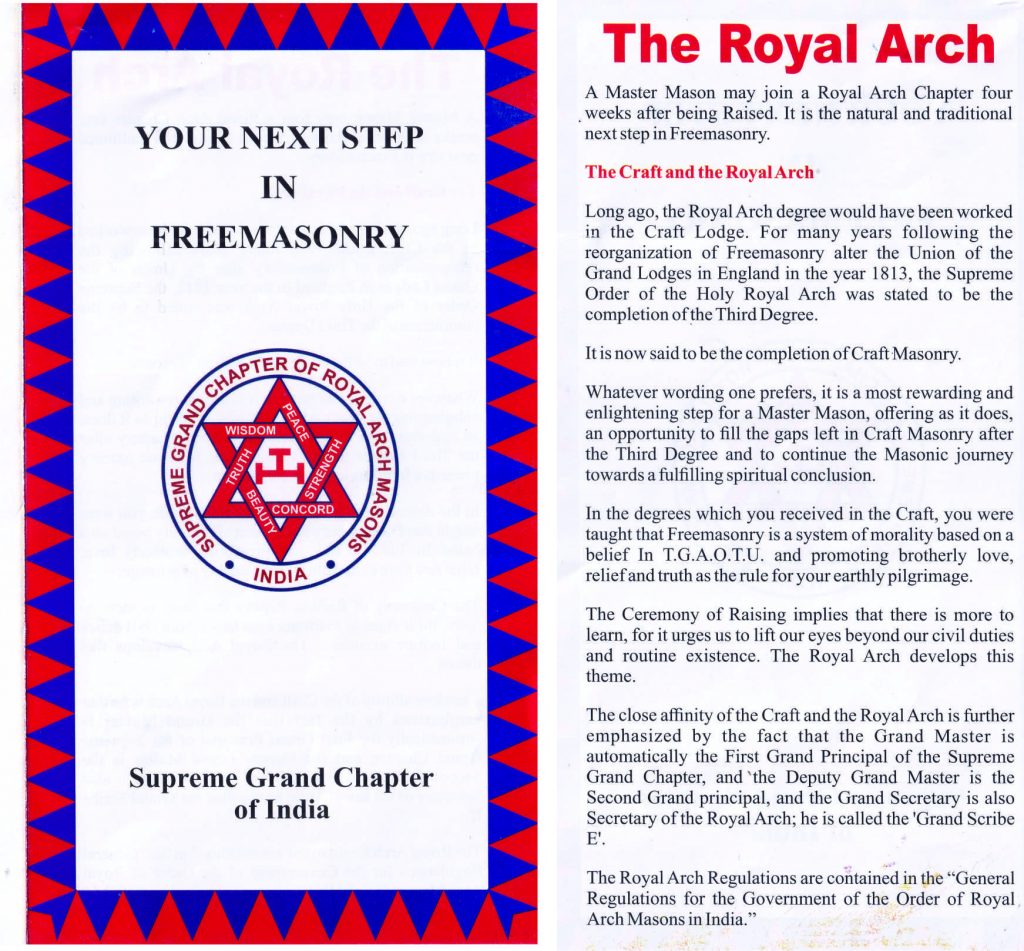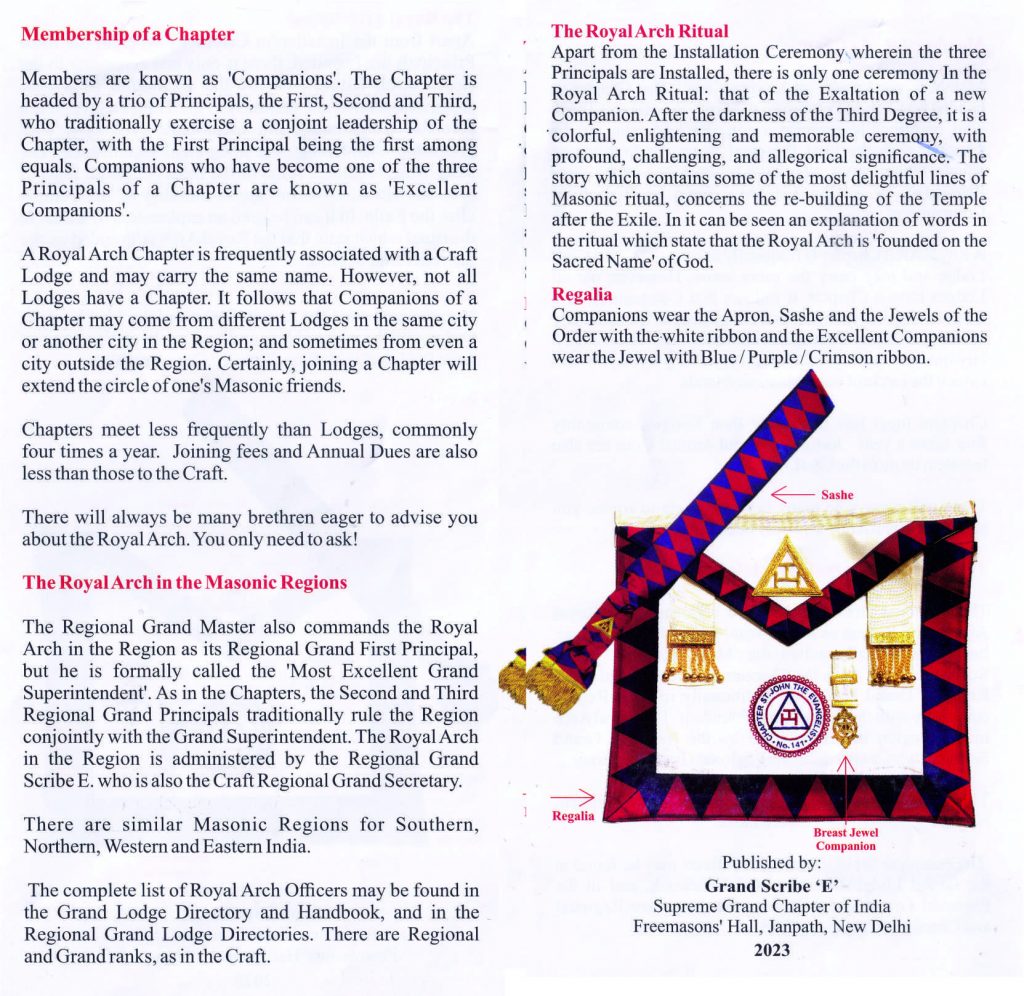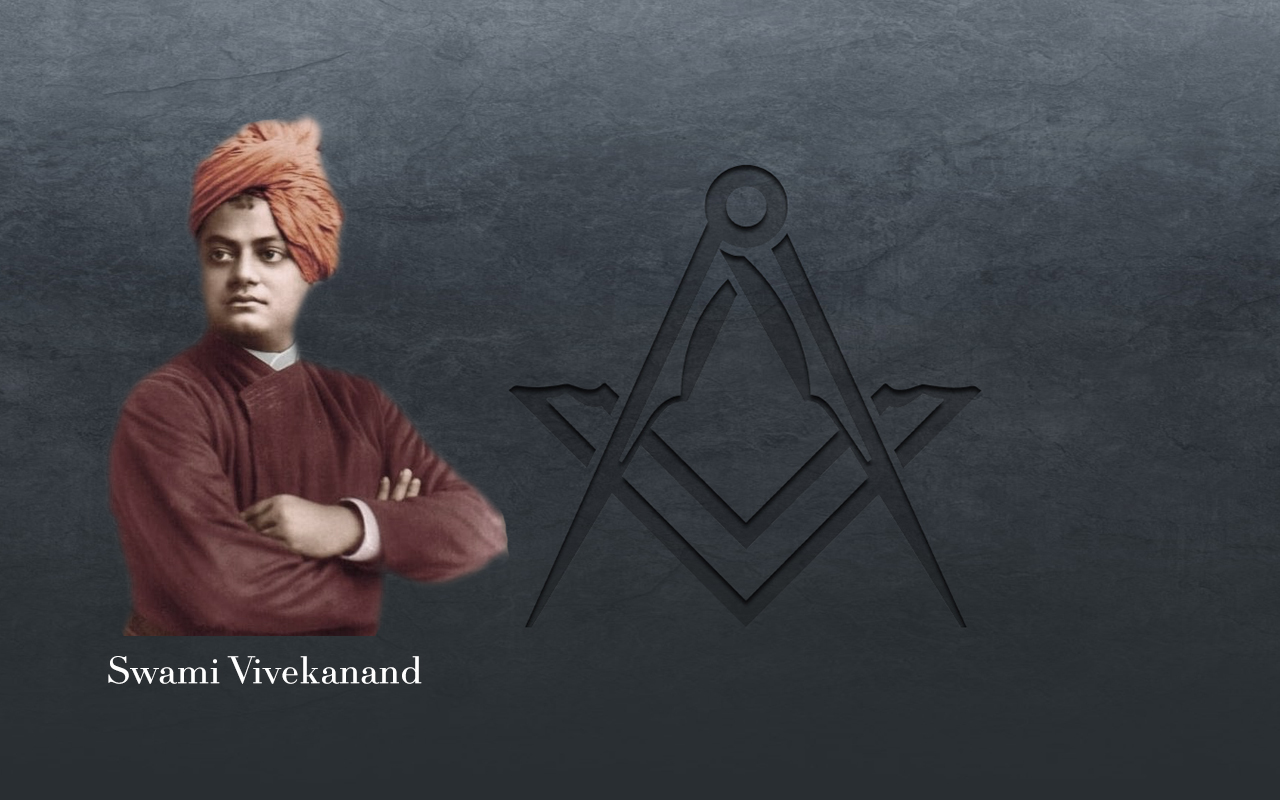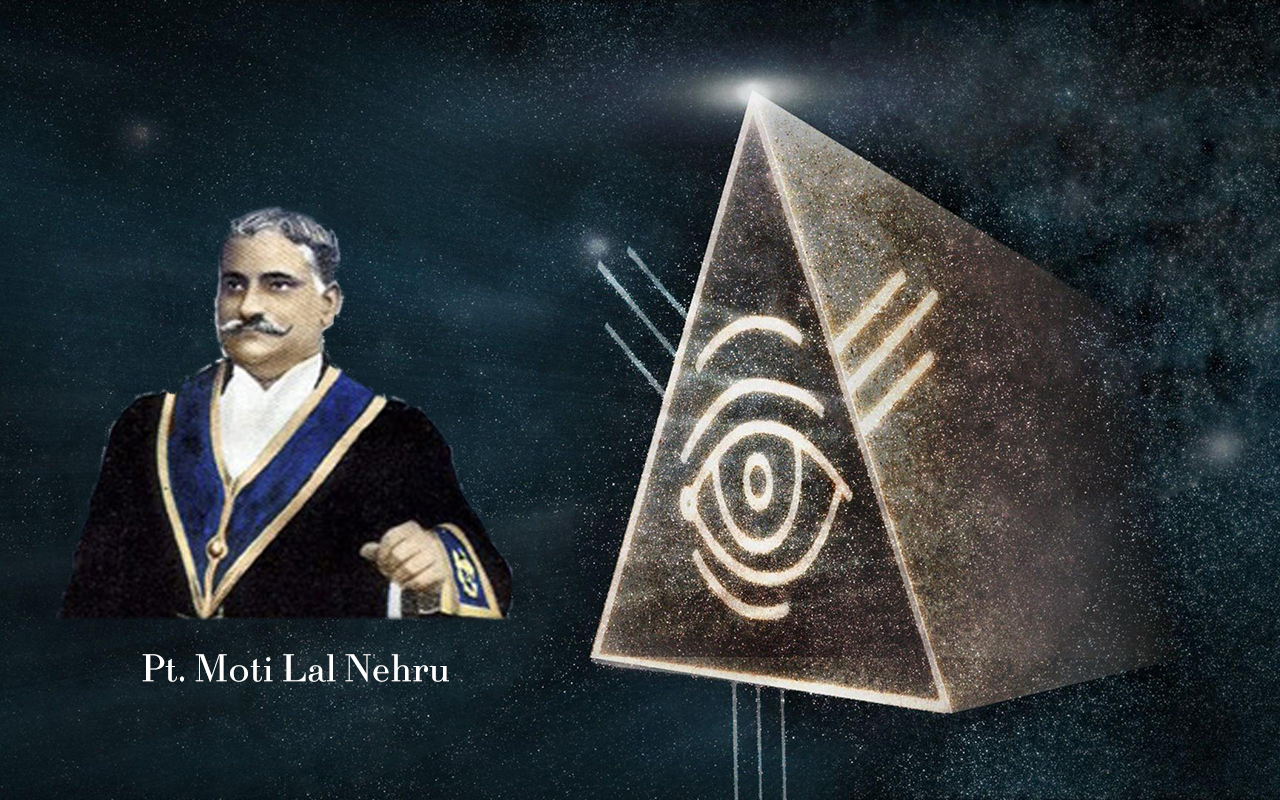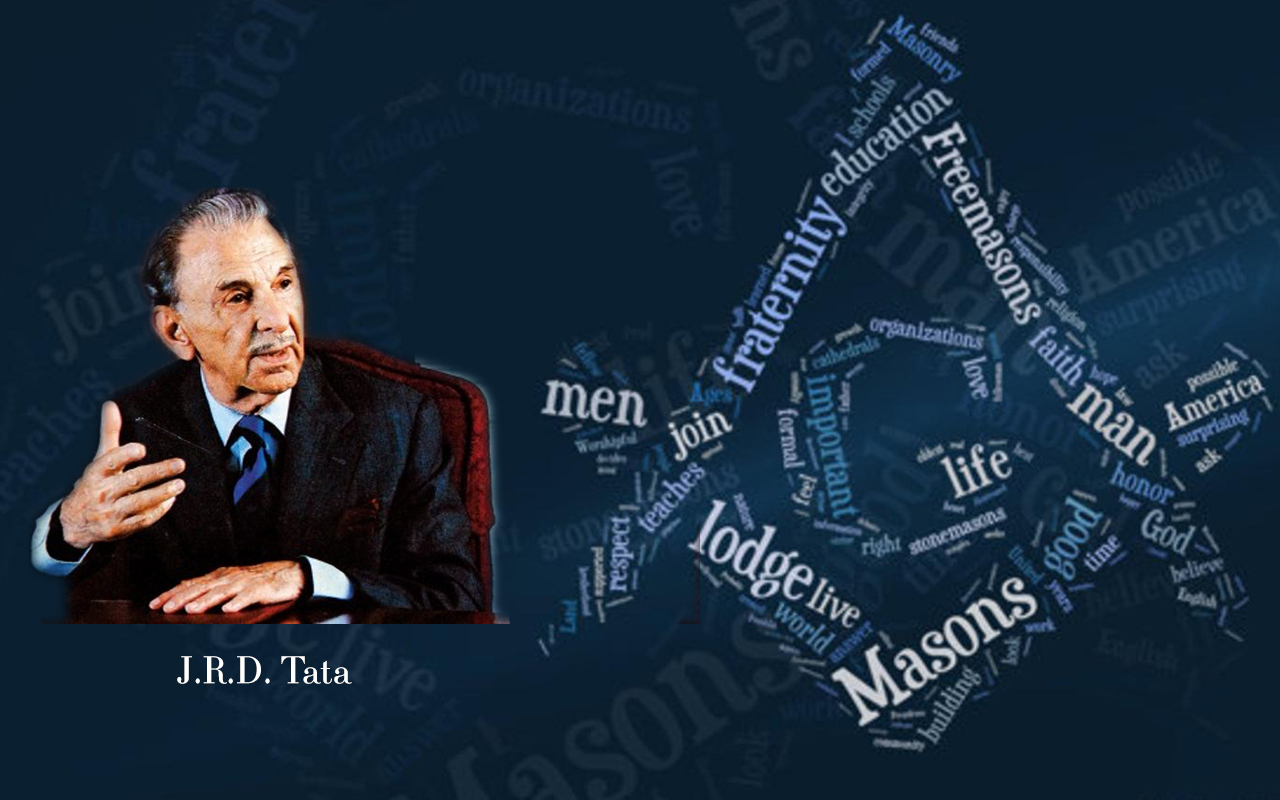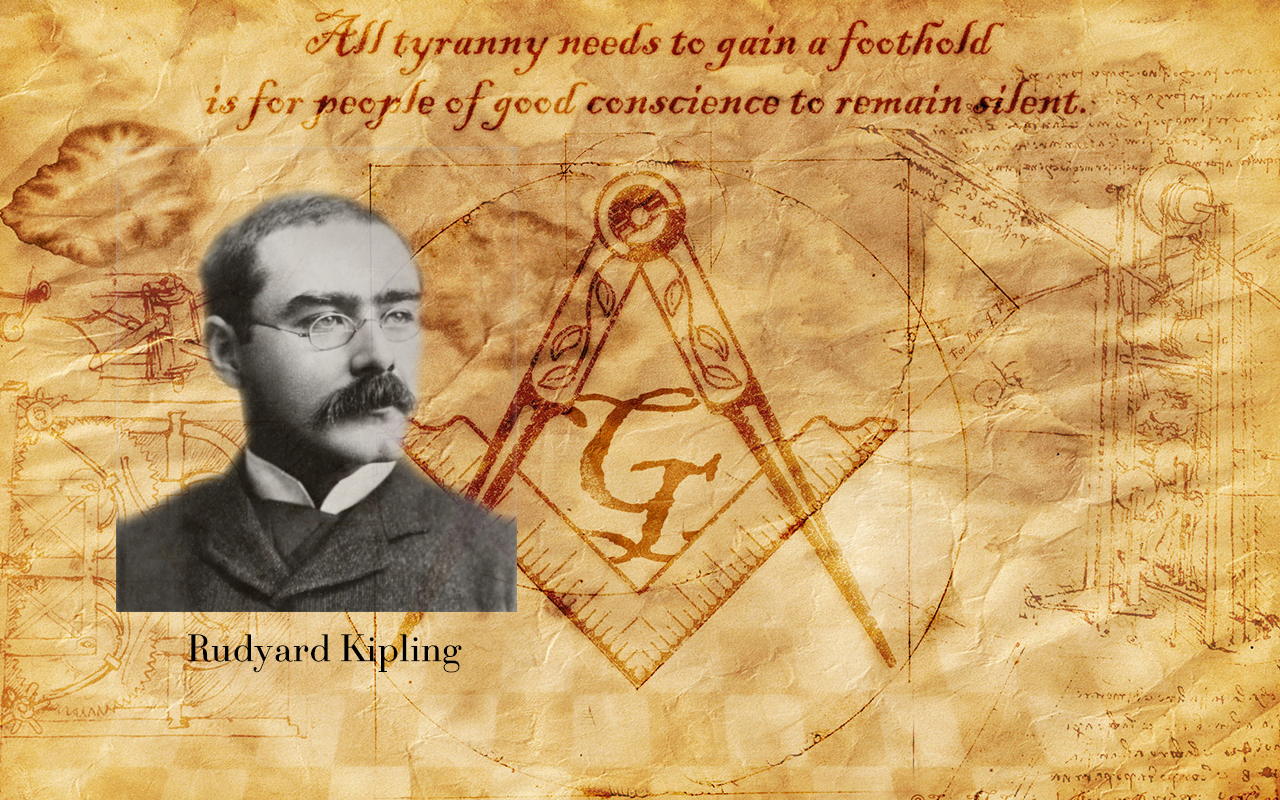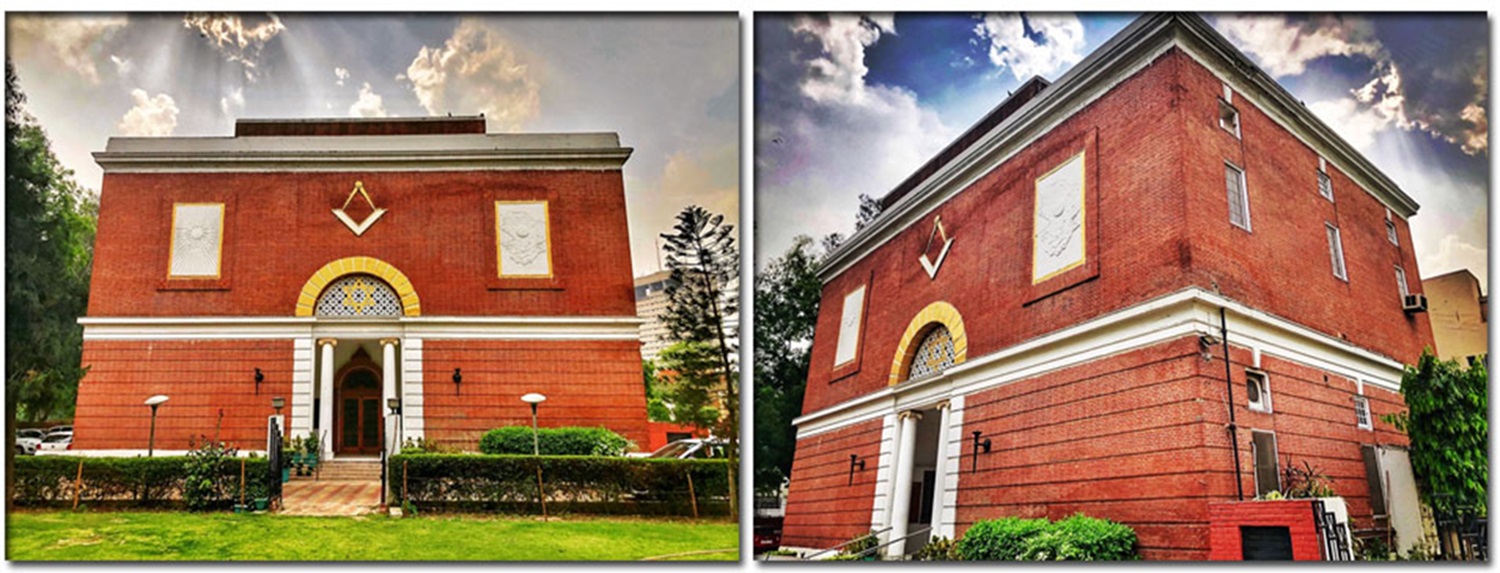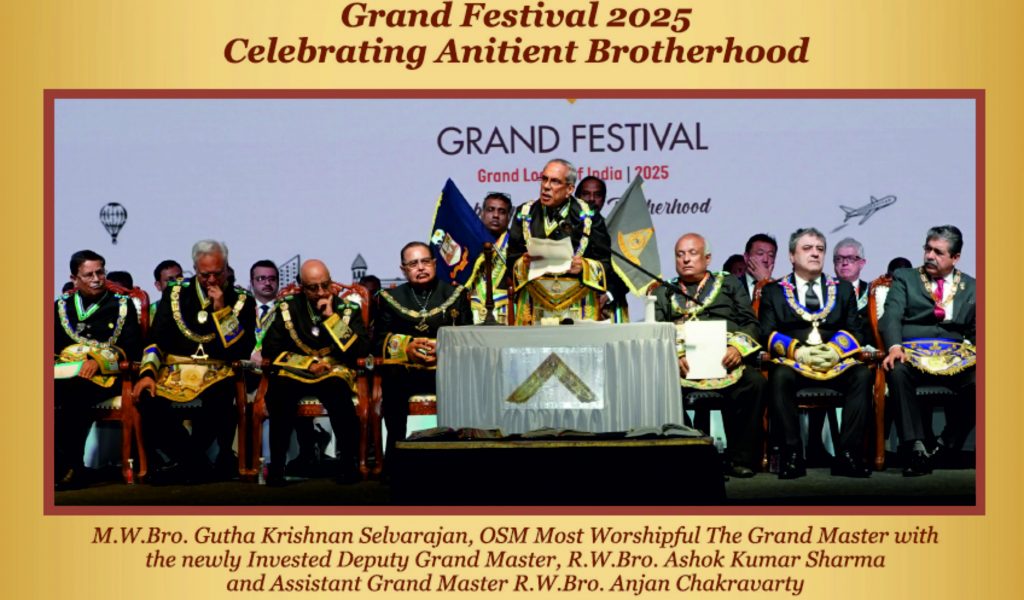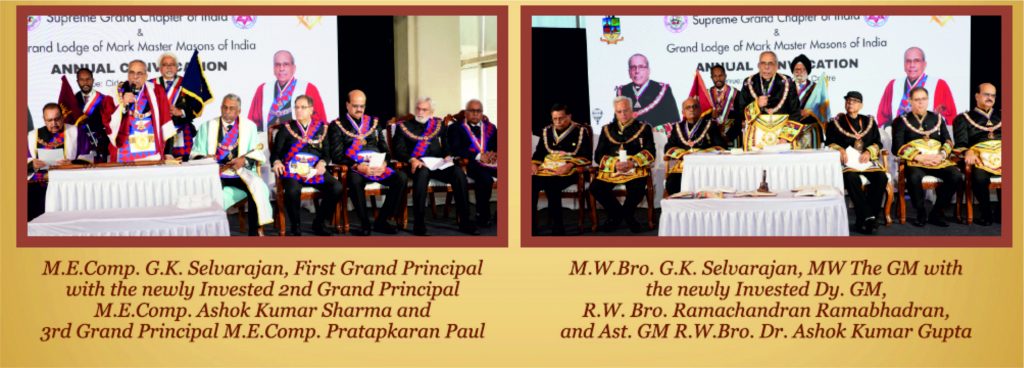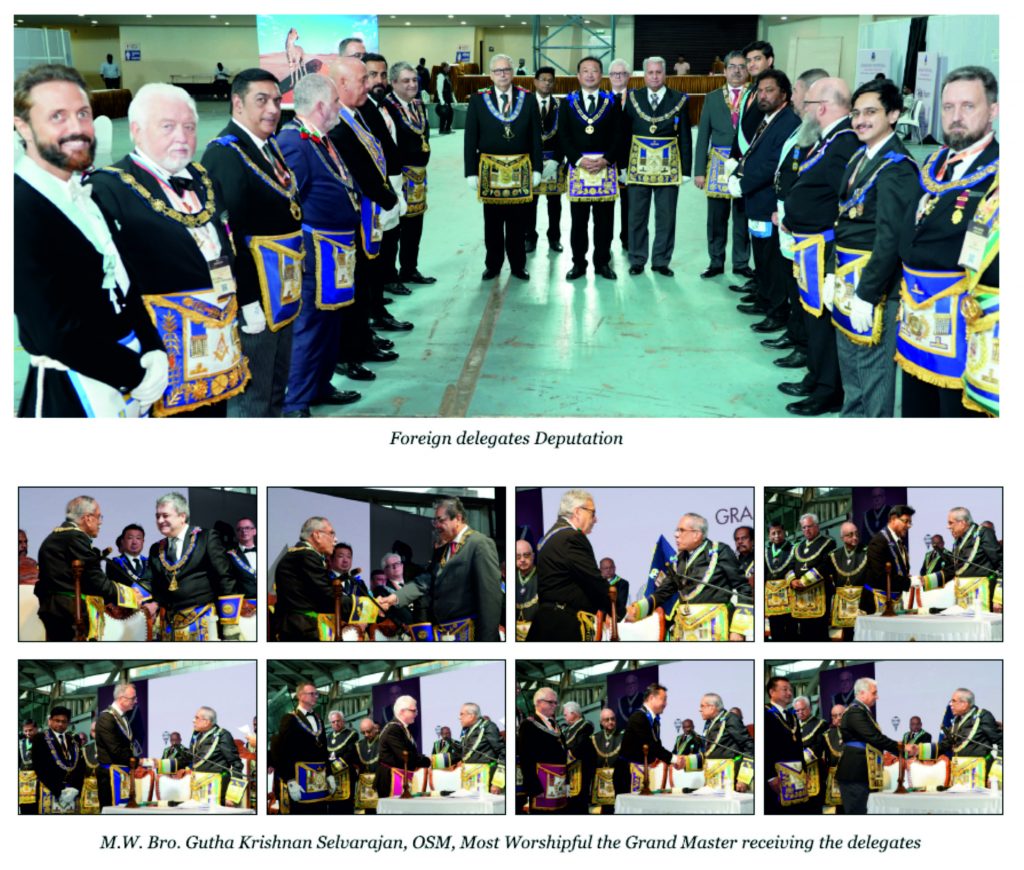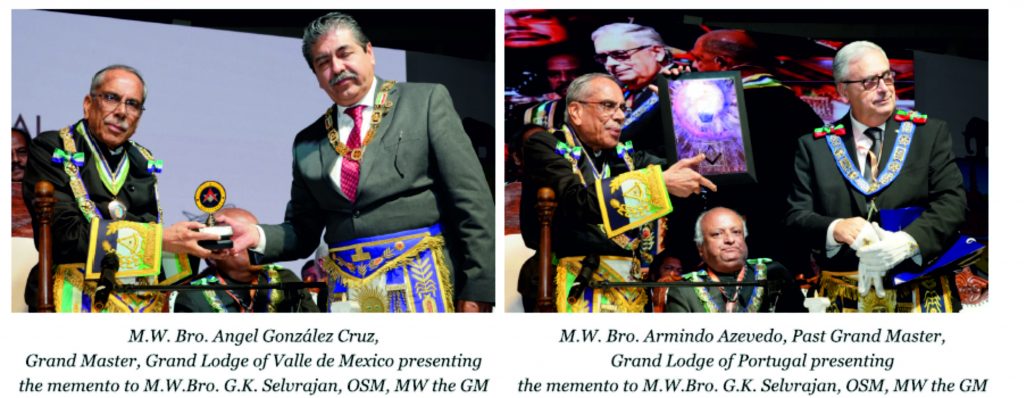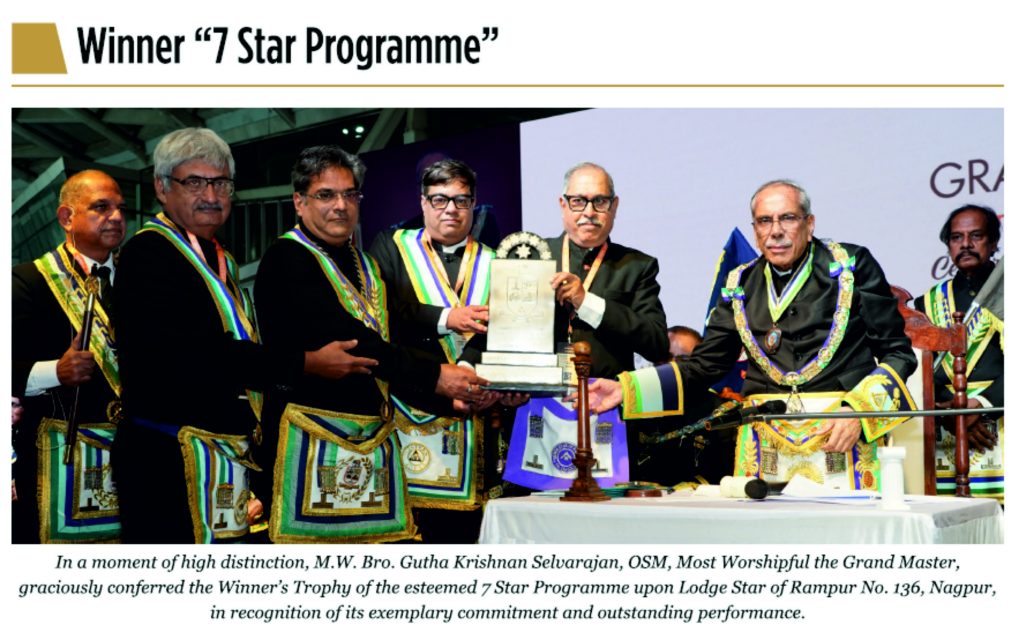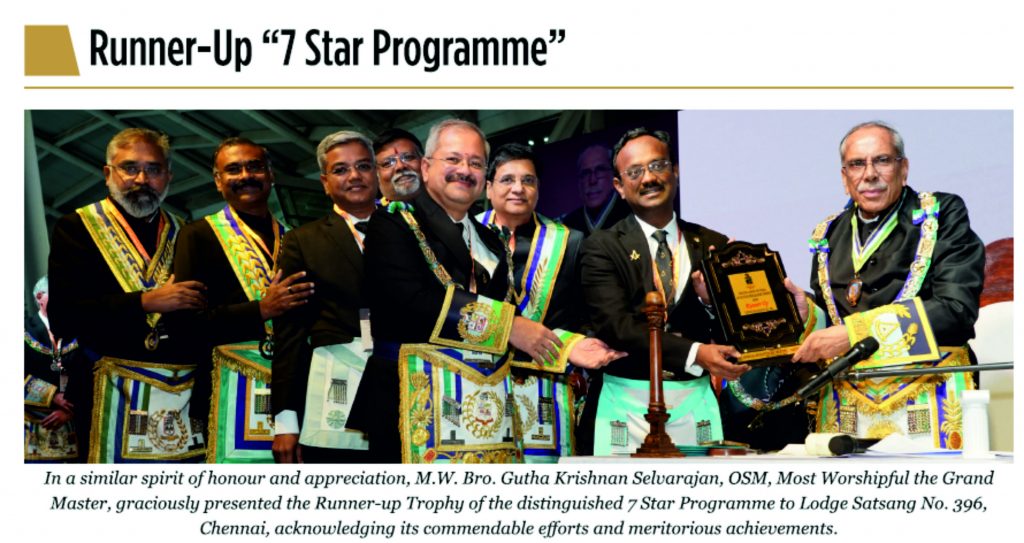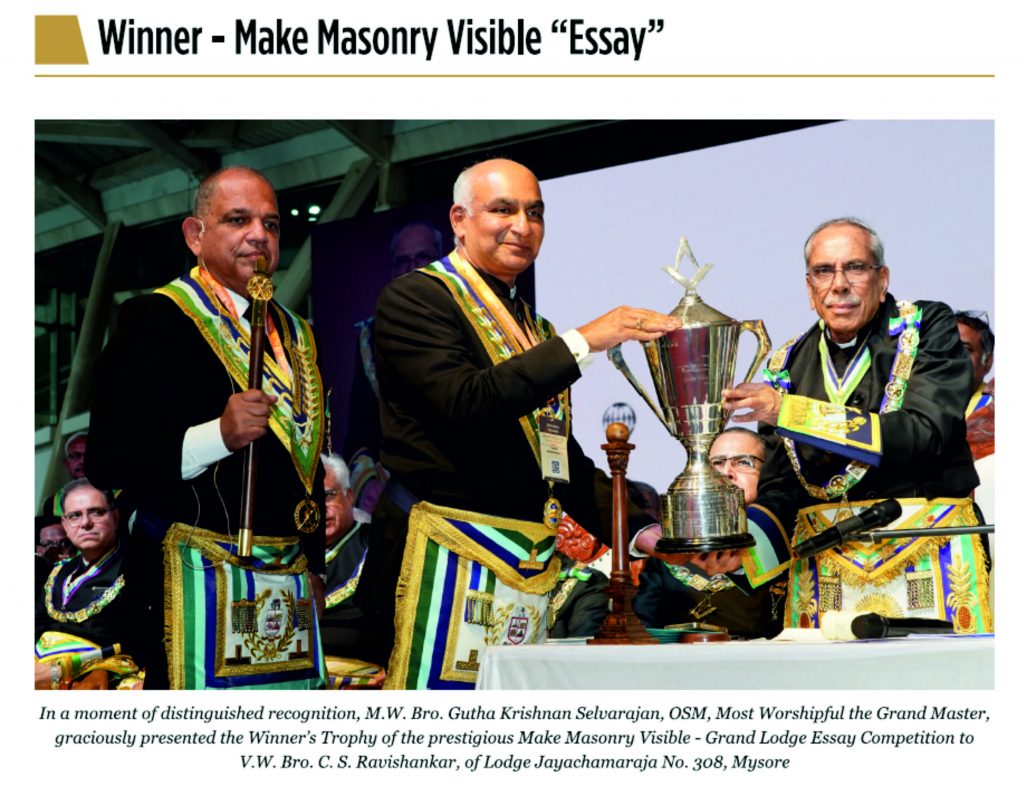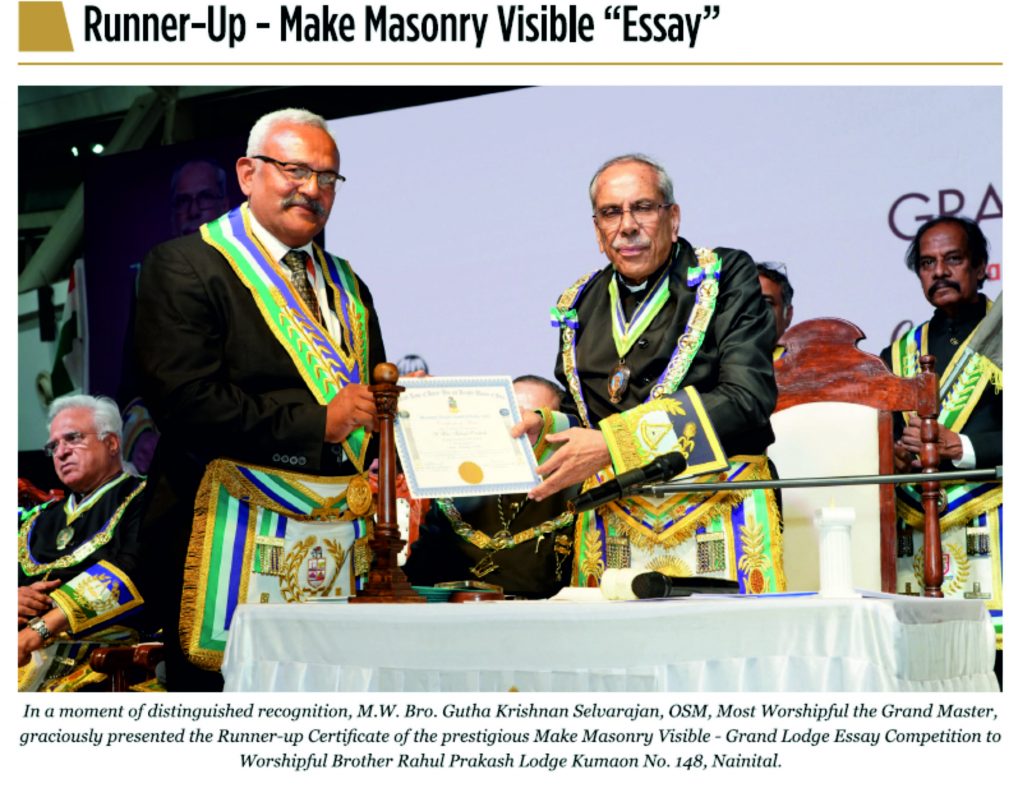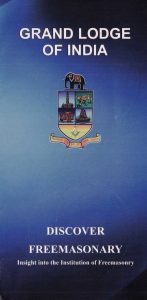Grand Lodge of Antient Free and Accepted Masons of India

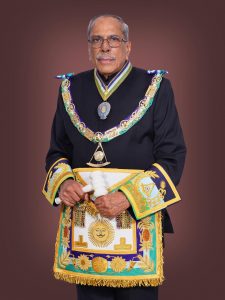
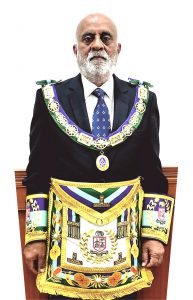
Grand Secretary
Although the contemporary history of Freemasonry in India can be traced to the year 1961, when the Grand Lodge of India was formed, Freemasonry was being widely followed throughout Europe and the English Colonies following the establishment of the Grand Lodges of England, Scotland and Ireland. The nobility, clergy, military personnel and men of influence sought to become part of the Fraternity.
British India was no exception. In fact, within just 12 years of the constitution of the Grand Lodge of England, constituted for the purpose of exercising supervision over the Lodges in London and its neighbouring areas, a petition was sent by a few Brethren in India to constitute a Provincial Grand Lodge in due form at Fort William, Calcutta. The petition having been granted, a Provincial Grand Master was appointed to supervise Masonic activity in India and the Far East in 1729.
In India, British influence gradually spread through its East India Company, and Lodges were established by the military, railways and bureaucracy, though the military played a more prominent role.
At the close of the French and Indian Peninsula wars there were, in addition to Military Static and Travelling Lodges, more than 100 Lodges warranted by the three Grand Lodges. Military Lodges greatly accelerated the growth of Colonial Freemasonry. It is no wonder that so many prominent military leaders of the French Revolutionary and Indian wars were Freemasons, such as Lord Nelson, Sir Charles Napier, Lieutenant General Sir Eyre Coote, twice Commander-in-Chief of British India, Lord Lake, Hastings, Dalhousie, the Duke of Wellington, Sir William Lockhart and Lord Kitchener of Khartoum, both Commanders-in-Chief of British India, and so on. Historical records indicate that the son of Hyder Ali, Tipu Sultan, was also himself a member of the fraternity.
Many Lodge had been set up in other major townships like Madras, Calcutta and Mumbai. By the next 150 years, some 400 registered Lodges were existing in India, but the figure diminished soon after India gained its Independence in 1947, when its strength came down to just about 290.
Amongst its prominent members Swami Vivekananda (initiated in 1884 under the name of Brother Narendra Nath Dutt, in Lodge ‘Anchor & Hope’, Calcutta); Motilal Nehru (father of Pandit Jawaharlal Nehru and grandfather of Indira Gandhi) – Lodge ‘Harmony’, Kanpur; C.Rajagopalachary (Governor General of India); Sir CP Ramaswamy Iyer (Divan of Travancore); Dr. P.V.Cheriy (Governor of Maharashtra); Maharaja of Patiala and Fakhruddin Ali Ahmed (President of India), Actor Ashok Kumar, Madhav Rao Scindhia, M.A.Khan Pataudi.
The Grand Lodge of India was officially constituted on Friday, the 24th of November 1961 at Asoka Hotel, New Delhi. There were three delegations from the Grand Lodge of Scotland, Ireland and England. In addition to the Grand Master, Masons of Grand Lodge of Scotland, representatives of Grand Masters of England and Ireland, The Grand Master of the Grand Lodge of the State of Israel, the Most Worshipful Past Grand Master of the Grand Lodge of Alberta (Canada) and about 1500 Brethren from all over India and abroad were present at this historic event.
After the consecration and Constitution of the Grand Lodge of India, the Deputy Grand Master of England assumed the Throne and installed Major General Dr.Sir Syed Raza Ali Khan, His Highness the Nawab of Rampur, as the first Grand Master of the Grand Lodge of India. The Apron, chain in Gold and Gauntlets etc. For the new Grand Master were presented jointly by the three parent Grand Lodges.
Thereafter, the new Grand Lodge invited the 277 individual Lodges existing in India at the time to join, only if they so desired. Of these, 145 came forward, while other decided to remain under the charter of their respective founding Grand Lodges of England, Ireland and Scotland, respectively. The Lodges which came into the fold of the Grand Lodge of India were known as ‘Foundation Lodges’. The headquarters of the Grand Lodge of India was, and continues to be located at Freemasons’ Hall Complex, Janpath, New Delhi.
Over the next few weeks Regional Grand Lodges came into being viz – the Regional Grand Lodge of Northern India with its headquarters at New Delhi; the Regional Grand Lodge of Eastern India with its headquarters at Kolkata; the Regional Grand Lodge of Western India with its headquarters at Mumbai and the Regional Grand Lodge of Southern India with its headquarters at Chennai. All Foundation Lodges falling into regional jurisdiction came into the fold of their respective Regional Grand Lodges, and in the coming five decades more Lodges have come into existence, and many prominent citizens have joined the Fraternity.
Today India has nearly 470 Lodges and over 160 R.A.Chapters, over 180 Mark Lodges and over 140 R.A.M.Lodges located in about 172 cities in different parts of the country, with a total membership of about 23000 Freemasons. These Lodges have been divided into four distinct regions in India, with each region headed by respective Regional Grand Master.
Many veteran Lodges are still retaining their rich history, traditions and customs, though rituals being followed in all the lodges are uniform.
THE BIRTH OF THE GRAND LODGE OF ANTIENT FREE AND ACCEPTED MASONS OF INDIA
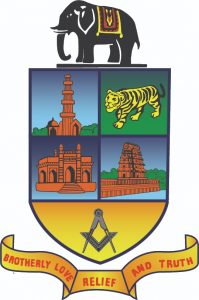 It was towards the end of October 1959 that the Most W. Grand Masters of England, Ireland and the Immediate Past Grand Master Mason of Scotland met in London to discuss the future of Freemasonry in India. The three Grand Masters considered that “an independent Grand Lodge of India is desirable and that its establishment should….be gradually but actively pursued.”
It was towards the end of October 1959 that the Most W. Grand Masters of England, Ireland and the Immediate Past Grand Master Mason of Scotland met in London to discuss the future of Freemasonry in India. The three Grand Masters considered that “an independent Grand Lodge of India is desirable and that its establishment should….be gradually but actively pursued.”
A representative Steering Committee was set up consisting exclusively of Indian Brethren in proportion to the number of Lodges under each of the three Constitutions, with R.W.Bro Lt.Gen. Sir Harold Williams, K.B.E., C.B., as Chairman, with the aim of establishing an independent Grand Lodge of India on the best possible foundations. The Steering Committee met at important centers of Masonic activities in the North, East, South and West of India and its report was unanimously signed early October 1960.
On December 1, the three Grand Masters issued “Notes on the proposed Grand Lodge of India for the information and guidance of Lodges in India.” Therein they reiterated their declared attitude towards an independent Grand Lodge of India, but left it to Lodges in India to decide whether to opt for or against joining such a body, adding that if the Brethren in India decided in favor of an independent Grand Lodge, they would accept the decision and establish with it the closest fraternal relations and that Lodges not wishing to participate would continue to enjoy the existing rights under their respective Grand Lodges.
Out of a total of 277 individual Lodges in India (excluding Pakistan, Ceylon and Aden, which were excluded for the poll) 145 opted for the new Grand Lodge of India. This represented a little over 52 per cent.
INAUGURAL MEETING
The Grand Lodge of India was officially constituted at ten minutes to six o’clock on Friday the 24th November 1961 in the Ashoka Hotel, New Delhi. There were three delegations from the Grand Lodge of Scotland, Ireland and England in that order.
After the three delegations were received and greeted, the Grand Master Mason of Scotland proceeded with the Consecration. Thereafter, The Deputy Grand Master of Ireland officially constituted the new Grand Lodge saying “in the name of the Grand Lodges of England, Ireland and Scotland and by the command of their Grand Master, I constitute and form you, my good Brethren into the Sovereign Grand Lodge of India, you are empowered henceforth to exercise all the rights and privileges of a Grand Lodge according to the ancient usage’s and landmarks of the Craft. May the Grand Architect of the Universe prosper, direct and counsel you in all your proceedings.”
After the Consecration and Constitution, the Deputy Grand Master of England assumed the Throne and installed Major General Dr. Sir Syed Raza Ali Khan, G.C.I.E.,D.Litt., LL.D., His Highness The Nawab of Rampur, as the first Grand Master of the Grand Lodge of India. The Aprons, Collars, Gauntlets etc. for the new Lodge were provided jointly by the three parent Grand Lodges.
In addition to the three parent Grand Lodges, the M.W. Grand Master of the Grand Lodges of the State of Israel, the M.W. Past Grand Master of the Grand Lodge of Alberta (Canada) and about 1,491 Brethren from all over India were present at this historic event.
ACTIVE OFFICERS 2026
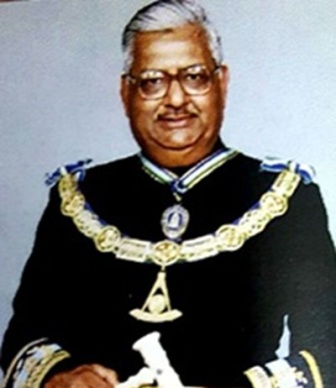
Board of General Purposes, Committee of General Purposes, General Board & RAM Council
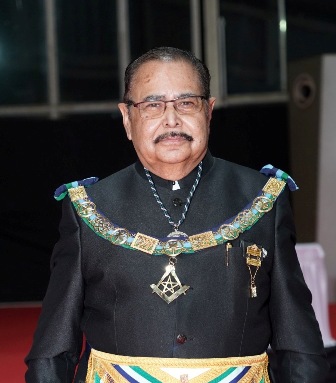
Grand Lodge of India
&
Second Grand Principal
Supreme Grand Chapter of India
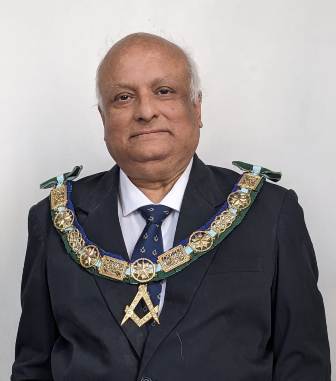
Grand Lodge of India
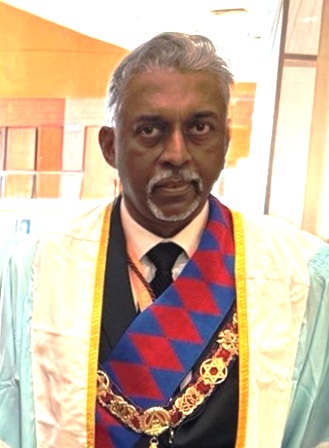
Supreme Grand Chapter of India

Grand Lodge of Mark Master Masons of India
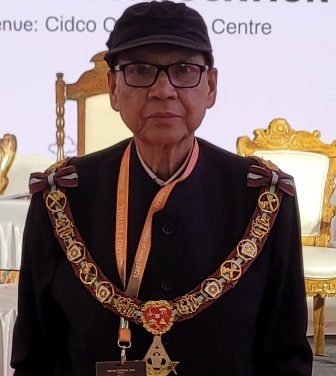
Grand Lodge of Mark Master Masons of India
Discover Freemasonry
No man is an island. To lead a harmonious and productive life, leaving an indelible imprint both in the sands of time and in the memories of those he cherishes, a man needs first and foremost to be aware-about himself, his duties, responsibilities and obligations. This is the foundation which builds a ‘noble’ man, and directs him and his energies productively. Freemasonry serves to do precisely this.
We say Freemasonry is all about ‘taking a good man and making him better’. How? Freemasonry recognises that there is goodness in all men-all it needs is to be channelized by self-awareness and guided to fulfil a man’s obligations to his own self, his dear ones and his fellow men.
Freemasonry opens a man’s eyes to the cardinal principles which have stood unchanged since the dawn of society, inculcates piety and virtue, exhorting him towards just and upright conduct, while diligently performing his duties, and that impresses upon him the importance of steadily persevering in making a daily advancement in his awareness and knowledge.
Freemasonry is about bringing to the fore a man’s innate compassion and love for his fellow men by proactively serving the distressed and the under-privileged, those in straightened circumstances who need their fellow man’s assistance the most.
Thus, Freemasonry is about nurturing a good man towards adopting those universally sacred principles-Truth, Honour and Virtue, and among virtues: Faith, Hope and Charity.
This then, is what Freemasonry is all about.
Motto of Freemasonry is Brotherly Love, Relief & Truth. It encourages the practice of the moral virtues of Temperance, Fortitude, Prudence and Justice. Freemasons do not indulge in discussions related to religion and politics. Like many other Societies it regards some of its internal affairs as private matters of concern only for its members. It inculcates obedience to God & observance of the Laws of the country. It is committed to extend the hand of fellowship & provide Relief to those in distress.
HISTORY OF FREEMASONRY
Freemasonry is one of the world’s oldest secular fraternal societies. It has been in existence in the present form since 1717 when the Grand Lodge of England was founded in London. Soon the Grand Lodges of Ireland and Scotland were established. There are around 230 Grand Lodges functioning all over the world.
It would be no surprise to anyone that the British brought Freemasonry to India. Wherever the British travelled, so did Freemasonry, and though most of the Lodges were established in Europe and America, India had its fair share. Calcutta was one of the first places the East India Company set up shop, so it is natural that Freemasonry in India had its beginning there. Provincial Grand Lodge was officially founded in Calcutta in 1729. Soon it got established in Madras, Bombay, Lahore and other cities wherever the British army laid foot. Masonic Temples, the building in which Freemasons meet, can be found in the most prominent addresses in the country.
The Grand Lodge of India was consecrated as a Sovereign Grand Lodge with full Masonic jurisdiction over the territories of the Republic of India in November 1961. The primary unit organisation of Freemasonry is a Lodge. We have as of now 475 Lodges and over 530 other Masonic bodies located in different parts of the country with a total membership of about 22,000 Freemasons. For better administration the country is divided into four Regions – North, East, West and South. These administrative units are called Regional Grand Lodges and have headquarters in New Delhi, Kolkata, Mumbai and Chennai. The Grand Lodge of India has its head-office in New Delhi.
CHARITY & PHILANTHROPY
Masonic organisations throughout the world are engaged in many philanthropic and charitable projects. In India too, the Masonic Fraternity is involved in several charitable projects, all over the country. The General Williams Masonic Polyclinic, Masonic Eye Centre and a Masonic Public School in New Delhi, Amrit Masonic Special School for Spastic children in NOIDA, as also a Masonic Medical care centre for children in Coimbatore. The adoption of an entire village located in backward area, for all round development in Health, Sanitation, Education & Housing in Visakhapatnam Distt. and Construction of Sheds for cyclone victims in Andhra Pradesh, many Scholarships and Bursaries awarded to deserving students, helping institutions for the handicapped and the aged and holding of periodical Blood donation camps, Eye camps, Limb donation camps and other Health Camps etc., are examples of some of the socially relevant activities of Masonic organisations all over the country.
places the East India Company set up shop, so it is natural that Freemasonry in India had its beginning there. Provincial Grand Lodge was officially founded in Calcutta in 1729. Soon it got established in Madras, Bombay, Lahore and other cities wherever the British army laid foot. Masonic Temples, the building in which Freemasons meet, can be found in the most prominent addresses in the country.
The Grand Lodge of India was consecrated as a Sovereign Grand Lodge with full Masonic jurisdiction over the territories of the Republic of India in November 1961. The primary unit organisation of Freemasonry is a Lodge. We have as of now 475 Lodges and over 530 other Masonic bodies located in different parts of the country with a total membership of about 22,000 Freemasons. For better administration the country is divided into four Regions – North, East, West and South. These administrative units are called Regional Grand Lodges and have headquarters in New Delhi, Kolkata, Mumbai and Chennai. The Grand Lodge of India has its head-office in New Delhi.
CHARITY & PHILANTHROPY
Masonic organisations throughout the world are engaged in many philanthropic and charitable projects. In India too, the Masonic Fraternity is involved in several charitable projects, all over the country. The General Williams Masonic Polyclinic, Masonic Eye Centre and a Masonic Public School in New Delhi, Amrit Masonic Special School for Spastic children in NOIDA, as also a Masonic Medical care centre for children in Coimbatore. The adoption of an entire village located in backward area, for all round development in Health, Sanitation, Education & Housing in Visakhapatnam Distt. and Construction of Sheds for cyclone victims in Andhra Pradesh, many Scholarships and Bursaries awarded to deserving students, helping institutions for the handicapped and the aged and holding of periodical Blood donation camps, Eye camps, Limb donation camps and other Health Camps etc., are examples of some of the socially relevant activities of Masonic organisations all over the country.
WHAT FREEMASONRY IS NOT?
Freemasonry is not a religion nor does it have any religious philosophy that it forces on its members. It simply believes in the existence of a Supreme Being, whatever they conceive that deity to be. Their personal beliefs are just that-personal. It teaches Masons to be tolerant of the beliefs of others and to regard each man as their equal, deserving both respect and their assistance.
It is not a political party or organisation. It reminds them of the filial affection one should always have for the Land of their birth, to remain loyal to the laws of the land which, for the time being, may be the place of their residence, or afford them protection.
It is not a secret society. Freemasonry has been perhaps the most misunderstood, yet popular “secret society”. There is a myth that Freemasonry is a secret society. The truth is that Masons have secret methods of recognizing each other, such as handshakes, signs and passwords. Nothing more than that is a secret. Freemasonry does not conceal the time and place of its meeting nor does a member hide the fact of his membership. There is no secret about its aims & principles. Copies of its Constitutions and Rules can be obtained by interested members of the public from its offices.
It is not a social club. However, it provides the means of socialising among its members, which consists of a cross section of society drawn from all walks of life who meet on an equal footing. It also involves the families of members on such social occasions.
EMBLEM OF FREEMASONRY-THE SQUARE & COMPASSES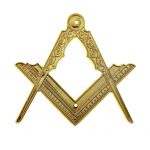
The emblem of the square and compasses is a prominent feature in Masonic decorations and is used widely in Masonic buildings as well. Both are architectural tools but have a symbolic meaning – “the square to square our actions and the compasses to circumscribe and keep us within bounds of all of mankind.”
MEMBERSHIP
How does Masonry gets its membership?
Freemasonry does not canvass for members, the person must seek for membership of a Masonic Lodge of his own free will and accord. He would however, be provided all information he wishes to know.
Who is eligible to become a Mason?
Anyone who is of good moral character and believes in the existence of Almighty God and a belief in the Supreme Being, no matter by what name He is called, or what faith the person professes, is eligible. No atheist can become a Mason.
What does Freemasonry expect from one who joins it?
He must understand and appreciate its high ideals and objectives and put to actual practice its motto of “Brotherly Love, Relief and Truth”.
Patriotism & Loyalty to one’s own country and the Fraternity at all times is a bounden duty.
It expects that a Freemason should do unto others, as he would wish others would do unto him.
Charity is the predominant characteristic of a Freemason’s heart. He is always expected to “give” to Freemasonry rather than expect to “receive” anything from it for personal benefit. That he will practice outside the Lodge those duties & virtues that he is taught inside the lodge.
Indian Order of Freemasons
The Indian Order of Freemasons-Grand Lodge of India, has, as its head, its Grand Master, who is elected for a term of three years. M.W. Bro. Maj. Gen. Dr. Sir Syed Raza Ali Khan, H.H. the Nawab of Rampur, was the first Grand Master of the Grand Lodge of India. M.W. Bro. Gutha Krishnan Selvarajan, O.S.M., the present Grand Master, is the 19th member to adorn the office since the time the Grand Lodge of India was formed in 1961.
Some of the prominent Indians who have been Freemasons are Swami Vivekananda, Shri C. Rajagopalachari, Shri Moti Lal Nehru, Shri Fakhruddin Ali Ahmed, Shri JRD Tata, Maj. Dhyan Chand. actors Shri Ashok Kumar & Shri David, as also several serving and retired judges of Supreme Court and High Courts, serving and retired Defence Personnel and Civilian Officers besides many Industrialists, Business men, Business Executives, Film Stars and other Professionals.
Application for membership
There is no canvassing of membership. Candidates for membership are expected to come of their own free will and accord. Whatever information is required will be furnished. Applications duly proposed and seconded by members are entertained by the Lodges and are scrutinised and balloted in the Lodge. Thereafter, the candidates are initiated-into Freemasonry according to ancient custom and receive various degree. Regional and Grand Lodge ranks are conferred on their attaining sufficient proficiency, based on merit and seniority.
“In a world where men do battle over whose definition of God is most accurate, I cannot adequately express the deep respect and admiration I feel toward an organization in which men of differing faiths are able to ‘break bread together’ in a bond of brotherhood, friendship, and camaraderie.
Please accept my humble thanks for the noble example you set for humankind.”
-Master story-teller Dan Brown who wrote the best-selling thriller-The Lost Symbol, based on Masonry
For further information Contact:
Grand Secretary, Grand Lodge of India Freemasons’ Hall, Janpath, New Delhi 110 001.
E-mail: office@grandlodgeofindia.in
Regional Grand Lodge of Eastern India – rgsec.19parkstreet@gmail.com
Regional Grand Lodge of Northern India – Email id: office@rgini.org
Regional Grand Lodge of Southern India – Email id: rgisisecy@gmail.com;
Regional Grand Lodge of Western India – Email: rglowi@gmail.com; rglowi@hotmail.com
Your Next Step in Freemasonry
